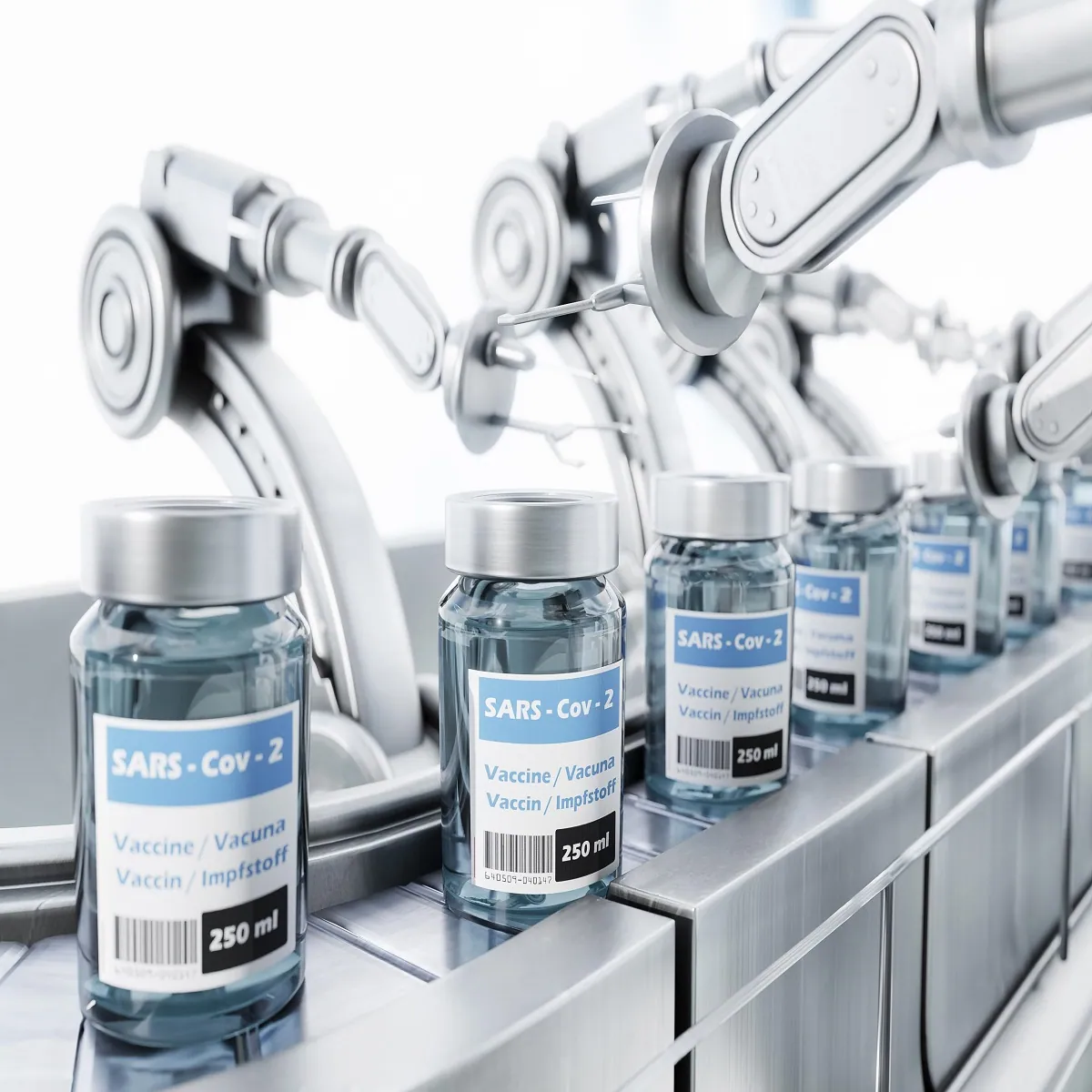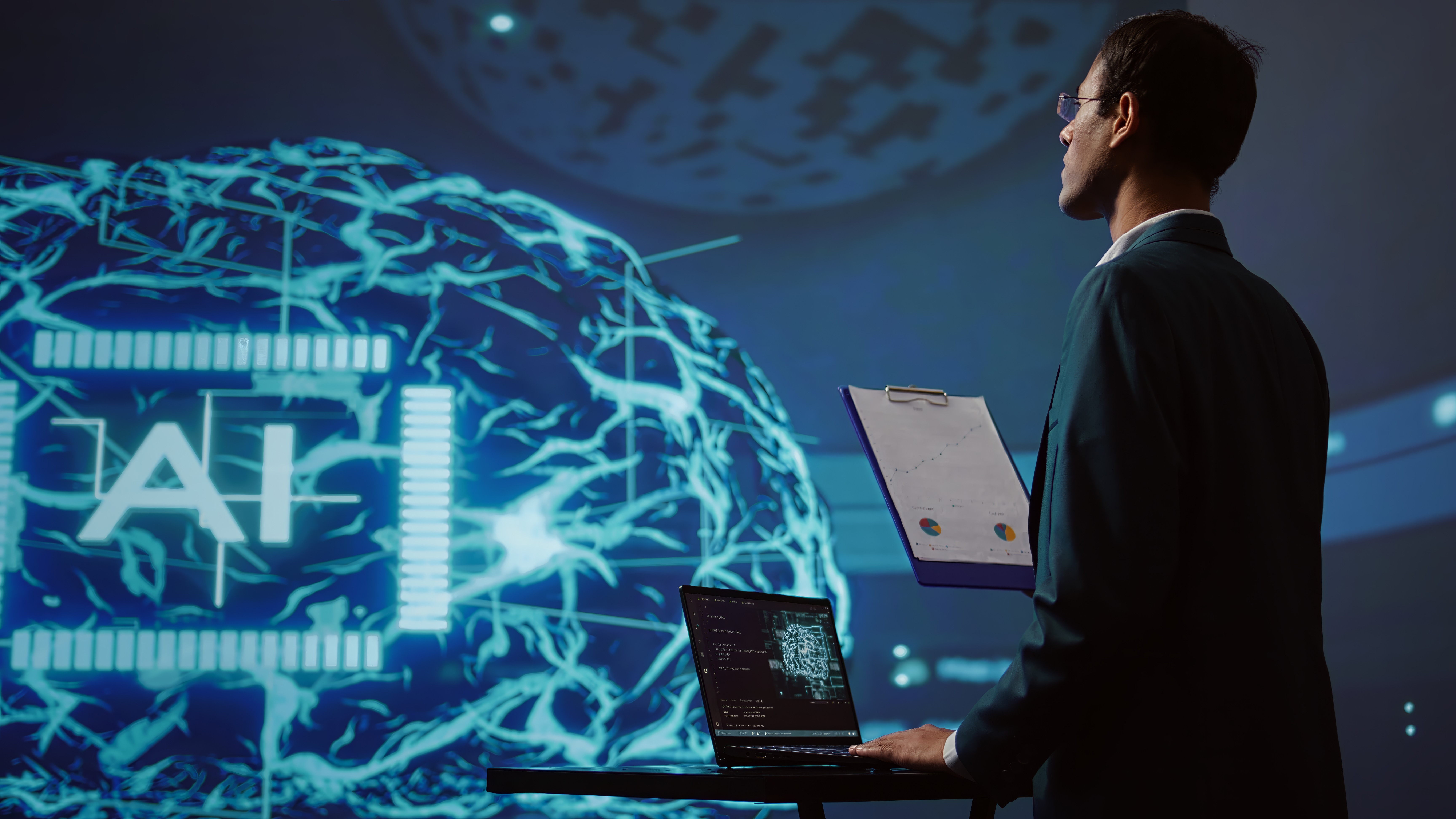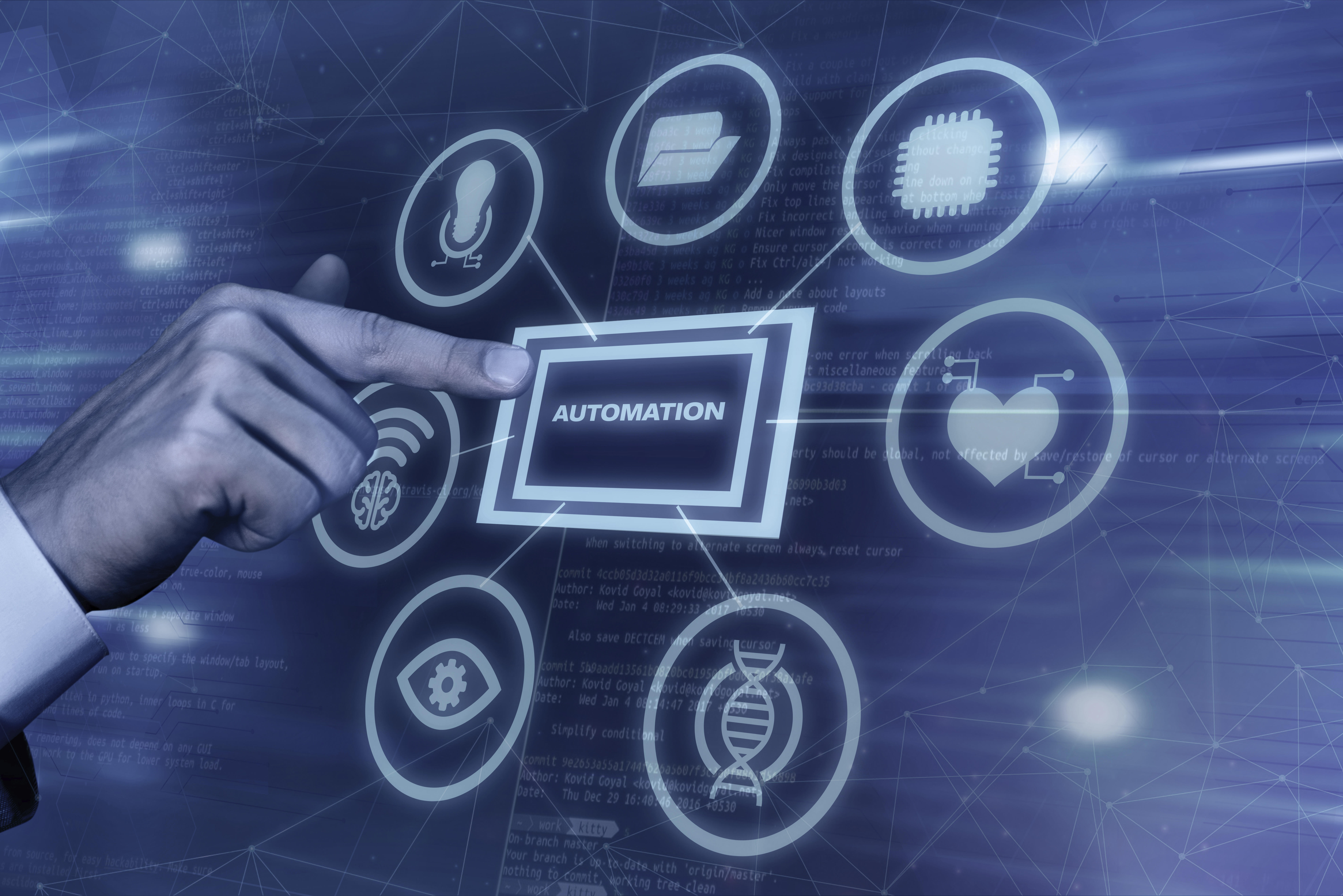AI and Drug Discovery: A Complete Guide to Modern Pharmaceutical Innovation
What is AI, and what is its Relevance to Drug Discovery?
Artificial Intelligence (AI) is the ability of machines to mimic human intelligence, allowing them to perform tasks like data analysis, pattern recognition, and decision-making. In the context of healthcare, AI is becoming a game-changer — especially in the field of artificial intelligence drug discovery. This involves using AI algorithms and models to accelerate and enhance the drug development process, from identifying new drug targets to optimizing clinical trials.
As the volume of biomedical data continues to grow, AI has become an essential tool for making sense of complex datasets. Whether it's analysing genetic sequences, protein structures, or patient health records, AI enables researchers to uncover hidden patterns and insights that would be nearly impossible to detect manually. This capability is particularly valuable in early-stage research, where understanding disease mechanisms and identifying promising molecular targets are critical. By integrating AI into these foundational stages, scientists can make more informed decisions and streamline the path from laboratory research to real-world treatments. This strategic advantage highlights just how deeply AI is now embedded in modern drug discovery efforts.
The Role of AI in Transforming the Pharmaceutical Industry
The traditional process of discovering new AI and drug discovery is time-consuming, expensive, and often uncertain. It can take over a decade and billions of dollars to bring a single drug to market. AI is transforming this process by introducing speed, precision, and scalability. Pharmaceutical companies now use AI systems to analyse vast amounts of biological and chemical data far more efficiently than human researchers alone could manage. AI also assists in generating new drug candidates, simulating how these drugs interact with the body, and predicting potential side effects. This not only shortens the discovery phase but also increases the likelihood of success in later clinical trials.
Key Benefits of AI in Drug Discovery Processes
AI offers several key advantages in the drug discovery process. It significantly speeds up development by reducing the time needed to identify viable drug candidates. Through automation of data analysis and predictive modelling, it also lowers research costs, making the entire process more cost-efficient. Additionally, AI enhances accuracy by minimizing human error and enabling data-driven decisions. Another major benefit is its support for personalization in medicine, allowing treatments to be tailored to individual patients based on their unique genetic profiles
What is Artificial Intelligence in Drug Discovery?
Artificial Intelligence in drug discovery refers to the use of intelligent algorithms and computational models to support and enhance the process of finding new medicines. Traditionally, drug discovery has relied on manual research methods, which are often time-consuming, expensive, and uncertain. AI introduces a data-driven approach, where machines can learn from vast and complex biological data to identify patterns, predict outcomes, and guide decision-making. This shift not only speeds up the discovery of potential drugs but also increases the accuracy and efficiency of the entire research process. As a result, AI is becoming an essential component in modern pharmaceutical development.
How is Artificial Intelligence Defined in the Context of Drug Discovery?
In pharmaceutical research, AI is used to analyse vast datasets such as genetic information, clinical trial results, and chemical properties of compounds. Traditional methods often involve years of manual testing and experimentation, but AI can rapidly process this information to highlight promising drug candidates. For example, machine learning models can predict how a new compound might interact with a disease target or how likely it is to cause side effects. This reduces the need for trial-and-error in the lab and enables more precise targeting from the start.
Overview of How AI is integrated into Pharmaceutical Research
AI tools are now integrated at almost every stage of the drug development lifecycle. During the early stages, AI helps identify potential drug targets by mining scientific literature and biological databases. Once targets are identified, AI algorithms assist in designing molecules that are likely to interact effectively with them. In later stages, artificial intelligence drug discovery clinical trial planning by identifying suitable patient groups and predicting trial outcomes based on prior data.
How is AI Revolutionizing Drug Discovery?
AI is bringing a fundamental shift to the way new drugs are discovered and developed. By leveraging powerful algorithms and data-driven insights, AI enables researchers to move beyond traditional trial-and-error methods. It can analyse enormous datasets—such as genomic information, molecular structures, and clinical outcomes—at a speed and scale that far exceeds human capabilities. This revolution is not just about saving time and costs; it’s about making smarter decisions earlier in the drug development process. As AI continues to evolve, its role in drug discovery is expanding, offering new hope for faster cures and more effective treatments.
Enhancing Drug Discovery Pipelines with AI Algorithms
Traditional drug discovery pipelines involve a long sequence of steps—target identification, compound screening, laboratory testing, and clinical trials—each of which can take years. AI algorithms are now being used to automate and enhance these steps. For example, AI can screen millions of chemical compounds virtually, predicting which ones are most likely to bind effectively with a disease target. This reduces the need for physical testing and allows researchers to focus only on the most promising candidates. Additionally, AI can analyse biological pathways and genetic data to identify new drug targets that would be difficult to find using manual methods.
AI’s Ability to Predict Drug Efficacy and Safety
One of the most valuable contributions of AI in drug discovery is its ability to predict how a drug will behave in the human body. AI models can simulate drug interactions, assess potential side effects, and forecast treatment outcomes by learning from historical data. This predictive power helps scientists avoid costly failures during clinical trials and ensures that only the safest and most effective candidates move forward. It also supports personalized medicine by identifying which patients are most likely to benefit from a particular treatment.
How is AI Used in Drug Discovery?
AI and drug discovery is being used across multiple stages of the drug discovery process to enhance speed, accuracy, and efficiency. From the initial step of analysing large datasets to the design and testing of new drug compounds, AI offers intelligent solutions that were previously unattainable with traditional methods. By identifying hidden patterns in biological data and predicting how potential drugs will interact with the body, AI enables researchers to make more informed decisions. This intelligent use of technology is not only reducing the time and cost of drug development but also increasing the likelihood of discovering safer and more effective treatments.
Data Collection and Analysis in Pharmaceutical Research
The first step in drug discovery involves gathering and analysing vast amounts of biological, chemical, and clinical data. AI excels at processing this complex information far more efficiently than traditional methods. It can comb through scientific publications, genomic databases, and clinical trial records to extract valuable insights. Machine learning models detect correlations between genes, proteins, and diseases that would otherwise remain hidden. This data-driven approach enables researchers to uncover potential drug targets and understand disease mechanisms more thoroughly.
AI-Driven Drug Screening and Design
Once potential targets are identified, the next phase involves screening compounds to find those most likely to interact effectively with them. AI accelerates this process by virtually testing millions of molecules using predictive modelling. These models evaluate the structure, behaviour, and biological impact of compounds without needing to conduct time-consuming lab experiments. In addition, AI can help design entirely new molecules with specific properties by using deep learning techniques, a process known as generative chemistry.
What are the Key Applications of Artificial Intelligence in Drug Discovery?
AI is revolutionizing drug discovery through its application in various crucial areas, making the entire process more efficient, targeted, and personalized. By harnessing vast amounts of data, AI enables faster and more accurate biomarker discovery, leading to advancements in precision medicine. It helps researchers identify the right molecular targets for diseases and predict how patients will respond to treatments based on their genetic and clinical profiles. Additionally, AI plays a pivotal role in optimizing clinical trial designs, allowing for better patient stratification and more informed decisions. These applications are transforming the way new drugs are developed, ensuring that they are safer, more effective, and tailored to individual needs.
AI in Biomarker Discovery and Precision Medicine
Biomarkers are critical for diagnosing diseases, predicting treatment responses, and monitoring therapeutic efficacy. Traditionally, discovering reliable biomarkers has been a lengthy and expensive process. However, AI significantly accelerates this by analysing large datasets from genomics, proteomics, and clinical trials to identify potential biomarkers. Through pattern recognition and machine learning models, AI and drug discovery can pinpoint molecular signatures that are associated with specific diseases, helping researchers develop more precise diagnostic tools. Moreover, AI’s ability to analyse patient data enables the development of precision medicine — treatments tailored to an individual’s genetic makeup, lifestyle, and disease characteristics. This ensures that patients receive the most effective treatments for their unique conditions.
AI in Clinical Trial Design and Patient Stratification
AI is also transforming clinical trial design by helping researchers identify the most suitable patient populations for specific trials. By analysing large datasets from electronic health records, genetic information, and prior clinical trial results, Artificial intelligence drug discovery can determine which patients are most likely to respond to a new drug. This process, known as patient stratification, improves trial outcomes by ensuring that the right participants are selected. AI is also used to optimize clinical trial designs, identifying the most relevant endpoints and predicting potential side effects or adverse events. By streamlining the recruitment process and ensuring more targeted trials, AI enhances the efficiency and success rates of clinical trials.
What are Some Real-World Examples of AI in Drug Discovery?
Real-world examples of AI in drug discovery highlight its transformative impact on the pharmaceutical industry. AI is actively contributing to the identification of new treatments and the repurposing of existing drugs, particularly in urgent scenarios like the COVID-19 pandemic. Companies like Atomise and Benevolent have demonstrated how AI can rapidly screen thousands of compounds, predict drug efficacy, and even suggest new uses for already-approved medications. These real-world applications showcase AI's ability to accelerate drug development timelines, improve accuracy, and provide valuable insights, making it a powerful tool in the ongoing quest to find life-saving therapies.
Case Studies of AI-Driven Drug Discoveries
One of the most notable examples of AI in action is its role in identifying potential COVID-19 treatments. In 2020, researchers used AI models to analyse existing drugs and predict which ones could be repurposed to treat the virus. Atomise, a leader in AI-driven drug discovery, used its deep learning technology to screen millions of compounds in a matter of weeks. The company’s AI models identified several promising drug candidates, which are currently undergoing clinical trials. This case exemplifies how AI can speed up the discovery process, especially in urgent situations.
Success Stories: Notable Drugs Discovered with AI Technologies
Another success story is the development of the drug Baricitinib, an AI-assisted discovery. The drug, initially developed for rheumatoid arthritis, was found to also be effective in treating COVID-19. Benevolent, an AI company, used its platform to analyse medical literature and clinical trial data, predicting that Baricitinib could block the virus from infecting cells. This AI-driven insight led to its emergency use authorization by the FDA for COVID-19 patients.
What are the Challenges and Limitations of AI in Drug Discovery?
While artificial intelligence (AI) has significantly transformed many aspects of drug discovery, several challenges and limitations must still be addressed to fully harness its potential. While AI can process and analyse vast amounts of data far quicker than humans, it requires human expertise to ensure that the insights and predictions it generates are valid, relevant, and aligned with real-world medical contexts. This means there is a crucial need for collaboration between AI technology and pharmaceutical professionals who can interpret complex biological data and apply it in practical settings.
The Need for Collaboration Between AI and Pharmaceutical Experts
A key challenge in leveraging AI for drug discovery lies in the integration of technology with the expertise of pharmaceutical professionals. AI models are powerful tools, but they require human expertise to interpret complex biological data. Pharmaceutical scientists, biologists, and clinicians must work alongside AI to ensure that the predictions made by algorithms are relevant, accurate, and aligned with real-world medical knowledge. Without this collaboration, AI might generate results that are technically correct but not feasible or practical in a clinical setting. Therefore, a strong partnership between data scientists and drug discovery experts is essential to achieving meaningful outcomes.
Ethical Concerns and Regulatory Challenges
In addition to collaboration, ethical and regulatory concerns are significant limitations when using AI in drug discovery. Patient data privacy is a top priority, and AI must be used in compliance with stringent privacy laws like GDPR and HIPAA. Additionally, many AI algorithms used in drug discovery, particularly deep learning models, are considered "black boxes." This lack of transparency makes it difficult to fully understand how decisions are made, which raises concerns for regulatory bodies such as the FDA, who need to ensure that drugs are safe and effective.
Conclusion
The continued evolution of AI technologies in drug discovery holds immense promise for the pharmaceutical industry. As Ai and drug discovery models become more advanced, they will increasingly contribute to faster, more accurate drug development, making it possible to address complex medical challenges more efficiently. The integration of AI has already demonstrated its transformative impact, particularly in predicting drug efficacy and identifying novel therapeutic targets. The future of artificial intelligence drug discovery looks bright, with AI poised to further revolutionize the way drugs are developed, making treatments more personalized and accessible to patients worldwide.








